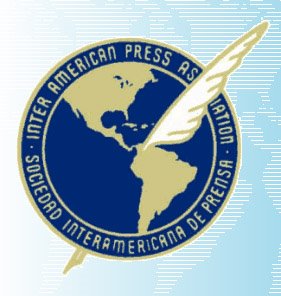EspañolThe midyear meeting of the Inter American Press Association (IAPA) concluded yesterday in Barbados and focused on the problem of censorship in the region. The cases discussed at the gathering included the Venezuelan press, the disbursement of state funds for media in Argentina, fines levied against media outlets in Ecuador, and the dangers of media consolidation in the hands of the state.
“Over the last year, attacks on press freedom in Venezuela have escalated,” concluded the council president, Elizabeth Ballantine.

With regard to state control and regulations over the press in Latin-American countries, Edward Seaton — of Seaton Newspapers, based in Kansas — said that it is essential that “an open marketplace of ideas” be guaranteed, so that “the government cannot control most of the media.”
Further, the IAPA president warned that certain countries represent a critical situation for press freedom. The causes of media consolidation, populism, and recent laws passed in countries like Argentina, Venezuela, and Ecuador took center stage during the debate among the panelists.

Venezuela and Argentina: Media Hegemony
According to Asdrúbal Aguiar, a former judge at the Inter-American Court, the governments of Argentina, Ecuador, Bolivia, and Venezuela have created laws with “similar goals” that have managed to consolidate a state media hegemony. These laws do not favor pluralism or help prevent private media monopolies.
Aguiar asserts that while the government is able to reach the entire population in these countries, private media only reaches 35 percent of the public.
“They have taken away media from private entities without need or competitive justification, only to give it to those entities that depend on the state,” explains the judge.
Jorge Benagas, an Argentinean journalist who did not participate in the conference, told the PanAm Post that, “the problem is not the hegemony, but intervention. Once [the state] gets involved, you learn of hegemony once it’s far too late.”
According to the journalist, the problem is that media has adapted its content and now responds to state power, because of the way the government funds state-friendly news. Benagas says that for some outlets, “what’s important is to respond to a certain circle of power, or the state itself directly. These circles maintain their own small piece of the pie, and will never antagonize the government.”
Given the difficulty in Venezuela to obtain foreign currency and overcome regulatory obstacles to import newsprint, Claudio Paolillo, president of the Freedom of the Press Commission of the IAPA, urged others to follow in the footsteps of the Colombian Association of Newspaper which sent 52 tons of newsprint to the country.
“I urge newspapers around the hemisphere, from Canada to Tierra del Fuego, to follow the example of Colombia and contribute so that Venezuelan newspapers can continue to exist,” said the president of the committee.
Paolillo continued by denouncing the problems faced by Venezuelan journalists and explained that print media is the only avenue left to freely express information. He said the government does not censor directly — as with a military dictatorship — but it operates through a mechanism of “subtle censorship.” With respect to radio broadcasting, he contends that “every time someone tries something independent or outside of the official line, they receive threats.”
For his part, the prime minister of the host nation Barbados, Freundel Stuart, asked that journalists in attendance exercise their freedom of expression responsibly and offered his assistance to the “elected government” of Nicolás Maduro to overcome the “restlessness” in the streets of the South American country.
According to the civic organization Public Space, located in Caracas, Venezuela, 13 newspapers have closed down, and 17 other outlets have been forced reduce their circulation. On this topic, Marcel Granier, owner of RCTV — a television channel critical of the Venezuelan government and shut down by former President Hugo Chávez — said to the IAPA that, “there are seven global media corporations that have enormous power over governments and other businesses, and many times, populists prefer to negotiate with them and attack the national media that reports what is happening.”
No Newsprint, No Newspaper
Since 2003, the government of Venezuela has enacted regulatory controls over the amount of foreign currency that can be bought and sold. Starting from last year, Venezuelan newspaper owners, and especially those critical of the government, have not been granted access to foreign currency exchange and therefore cannot import products necessary for their operations, including newsprint.
Representatives of print media in Venezuela, along with NGOs promoting press freedom, have launched a campaign called “No Newsprint, No Newspaper” to urge the government to approve their foreign currency exchange and allow the importation of newsprint.
The National Union of Press Workers (SNTP), with support from the National College of Journalists, held demonstrations on March 12 in Caracas, demanding Maduro allow the purchase of the raw materials needed by print media. The government has not yet issued a response to these demands.
 Versión Español
Versión Español












